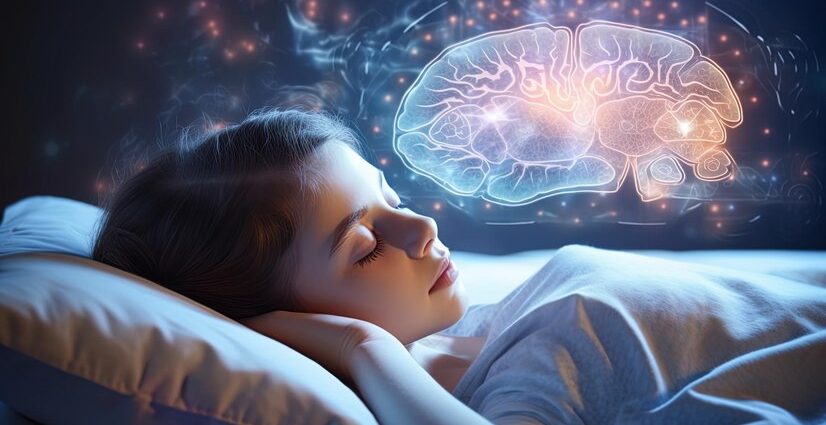The importance of having a restful sleep is well known to everyone, and suffering from insomnia is a threat to well-being. It is involved in various brain mechanisms, so maintaining good sleep hygiene is very important. Because sleep recharges our brain.
After a sleepless night, we can suffer different adverse consequences during the day, such as fatigue, drowsiness, headaches, attention deficit… Thus, it is evident that its function goes beyond allowing us a simple physical rest. On the other hand, the effects of lack of sleep reveal its complex function and the need that we humans have to sleep.
But what happens while we sleep? What functions does sleep have? How can I improve the quality of sleep? All these questions and more will be answered below.
Mechanisms and phases of sleep
While we sleep, certain neurological processes take place that are essential for learning mechanisms and memory consolidation. Let us remember that sleep is a basic human need and its deprivation has serious consequences, both mental and physical.
Once sleep has begun, a 70-100 minute cycle is identified that is repeated 4 to 5 times a night. The cycle begins when we are falling asleep. At this moment, non-REM sleep begins, first in the light phase and then in the deep phase.
When we have been sleeping for about 90 minutes, the REM phase begins, during which dreams occur.
As the hours of sleep pass, the duration of the REM phase becomes longer, which is why sleep is lighter at the beginning of the night. The duration of the phases also changes depending on age. For example, newborns sleep for 20 hours, and a large part of it is in the REM phase, which leads us to think about the involvement of the REM phase in neurocognitive development.
Factors that regulate sleep
The need for sleep changes depending on the daytime activity of each person. Thus, those who do not accumulate physical fatigue do not need the “physical repair” that takes place during sleep. Therefore, sedentary people will have many difficulties sleeping, because the body does not recognize the need to rest.
There is an endogenous 25-hour sleep-wake cycle that is synchronized with the 24-hour light-dark cycle. This is another factor that will be influential. This synchronization is out of sync in some people, who suffer from a circadian rhythm disorder. Melatonin is involved in this process.
The synthesis of this neurohormone varies during the 24-hour cycle and responds to changes in ambient lighting. Normally, melatonin secretion by the pineal gland is inhibited by light and stimulated by darkness. Melatonin secretion peaks in the middle of the night and gradually decreases.
The importance of sleep hygiene
One in three people will suffer from a sleep disorder at some point in their lives, with serious consequences. It can affect academic and work performance, as it causes cognitive alterations, as well as emotional changes that will affect interpersonal relationships or mood .
There are some basic rules to solve these disorders or avoid them. These guidelines are part of sleep hygiene, which can guarantee that it is restful. The following are some of the rules to follow:
- The room where we sleep has to be a pleasant place. No noise, with a stable temperature, and without excessive light stimulation.
- The pre-workout routine has to gradually reduce our level of physical and mental activity. Taking a relaxing bath, listening to chill out music, or doing relaxation exercises can be good examples.
- It is important to establish a fixed schedule, such as bedtime and wake-up time. It is also important to avoid “catching up” on lost sleep in the morning and to get up at the previously established time.
- Avoid naps during the day, as they can make it difficult to sleep at night.
- Reduce consumption of coffee, tobacco, and all types of stimulant substances that may interfere.
- Do not eat excessively before going to bed, but do not go to bed hungry either.
Function of sleep
It is not entirely clear at the moment, although there are various hypotheses. One theory is that of energy conservation. During sleep, our body temperature drops and oxygen consumption is reduced. Let’s say that it is a kind of energy saving to conserve energy after the tasks performed during the day.
Another hypothesis is that it has a restorative function.
It aims to rehabilitate our bodies after the effort made. It would combat the fatigue produced by the waking state of the day, physiologically restoring our body. There have also been studies on memory consolidation. Sleeping after training in any cognitive task, such as studying for an exam or playing an instrument, significantly increases performance. The presence of activity patterns similar to those during wakefulness in brain regions suggests that these activity patterns are reviewed, favoring learning.
